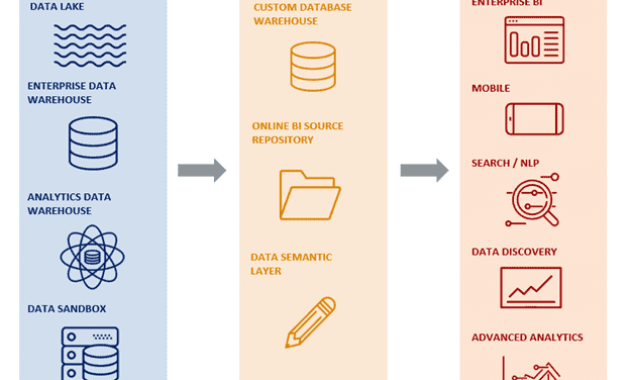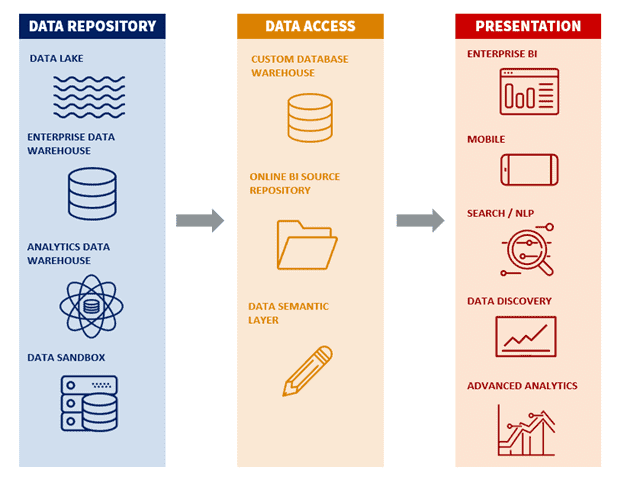
Self-Service Business Intelligence Software: Unlocking Data’s Potential
In today’s fast-paced business environment, data reigns supreme. The ability to collect, analyze, and interpret data is no longer a luxury, but a necessity. This is where self-service business intelligence (BI) software steps in, offering a powerful solution for organizations seeking to drive clarity and make informed decisions. This article delves into the world of self-service BI, exploring its benefits, features, and impact on modern business practices.
Self-service business intelligence software empowers business users to access and analyze data without relying heavily on IT or data science teams. This democratization of data analysis allows for faster insights, improved decision-making, and a more data-driven culture throughout the organization. The core function of this software is to provide user-friendly interfaces and tools that simplify the complex processes of data extraction, transformation, and loading (ETL), data modeling, and reporting.
The Evolution of Business Intelligence
The landscape of business intelligence has undergone a significant transformation. Traditional BI systems often required specialized expertise and were time-consuming to implement and maintain. This led to bottlenecks and delayed access to critical information. Self-service business intelligence software represents a paradigm shift, placing the power of data analysis directly into the hands of business users. This evolution has been driven by several factors, including the increasing volume and complexity of data, the growing need for agility, and the desire for greater business user autonomy.
The rise of cloud computing has also played a crucial role. Cloud-based self-service BI solutions offer scalability, accessibility, and cost-effectiveness, making them accessible to businesses of all sizes. These solutions often integrate seamlessly with various data sources, including databases, spreadsheets, and cloud applications. This integration streamlines the data analysis process and provides a holistic view of business performance.
Key Features of Self-Service BI Software
Self-service business intelligence software offers a range of features designed to empower users and simplify the data analysis process. These features typically include:
- Data Connectivity: The ability to connect to a wide variety of data sources, including databases, spreadsheets, cloud applications, and more.
- Data Preparation: Tools for cleaning, transforming, and preparing data for analysis. This includes data profiling, data cleansing, and data transformation capabilities.
- Data Visualization: A wide range of visualization options, such as charts, graphs, and dashboards, to help users understand data and identify trends. These visuals are designed to communicate complex data in an easily digestible format.
- Interactive Dashboards: Customizable dashboards that allow users to monitor key performance indicators (KPIs) and track progress toward business goals.
- Reporting and Analytics: Tools for creating reports, performing ad-hoc analysis, and uncovering insights. This also includes advanced analytical capabilities.
- Collaboration and Sharing: Features that enable users to share reports, dashboards, and insights with colleagues. This includes the ability to collaborate on data analysis and facilitate data-driven discussions.
- Mobile Access: The ability to access reports and dashboards on mobile devices, allowing users to stay informed on the go.
Benefits of Implementing Self-Service BI Software
The implementation of self-service business intelligence software offers numerous benefits for organizations. These benefits can significantly improve business performance and drive better decision-making.
- Faster Insights: Business users can quickly access and analyze data, reducing the time it takes to identify trends and make decisions.
- Improved Decision-Making: Data-driven insights empower users to make more informed decisions, leading to better outcomes.
- Increased Agility: Organizations can respond quickly to changing market conditions and identify new opportunities.
- Reduced Reliance on IT: Business users can perform their own data analysis, freeing up IT resources for other tasks.
- Enhanced Collaboration: Data and insights can be easily shared, fostering collaboration and knowledge sharing across the organization.
- Cost Savings: By streamlining data analysis processes and reducing reliance on IT, organizations can achieve significant cost savings.
- Improved Data Literacy: The use of self-service BI tools can increase data literacy across the organization, empowering employees to make data-driven decisions.
Choosing the Right Self-Service BI Software
Selecting the right self-service business intelligence software is crucial for success. Several factors should be considered when evaluating different solutions:
- Ease of Use: The software should be intuitive and easy to use, with a user-friendly interface.
- Data Connectivity: The software should be able to connect to all relevant data sources.
- Data Visualization Capabilities: The software should offer a wide range of visualization options to meet various analytical needs.
- Reporting and Analytics Features: The software should provide robust reporting and analytical capabilities.
- Scalability and Performance: The software should be able to handle large datasets and growing data volumes.
- Security and Governance: The software should offer robust security features and data governance capabilities.
- Pricing and Licensing: The software’s pricing and licensing model should align with the organization’s budget and needs.
- Vendor Reputation and Support: Consider the vendor’s reputation, customer reviews, and the availability of support and training.
Real-World Applications of Self-Service BI
Self-service business intelligence software is used across various industries and departments. Here are some examples of how it is being used:
- Sales and Marketing: Analyzing sales performance, identifying customer segments, and optimizing marketing campaigns.
- Finance and Accounting: Monitoring financial performance, tracking expenses, and generating financial reports.
- Human Resources: Analyzing employee performance, tracking employee turnover, and optimizing recruitment efforts.
- Operations: Monitoring operational efficiency, identifying bottlenecks, and optimizing supply chain processes.
- Healthcare: Analyzing patient data, improving patient outcomes, and optimizing healthcare operations.
- Retail: Analyzing sales data, identifying customer preferences, and optimizing inventory management.
The Future of Self-Service BI
The future of self-service business intelligence software is bright. Several trends are shaping the evolution of this technology:
- Artificial Intelligence (AI) and Machine Learning (ML): AI and ML are being integrated into BI platforms to automate tasks, provide predictive analytics, and generate insights.
- Natural Language Processing (NLP): NLP is enabling users to interact with BI tools using natural language, making data analysis more accessible.
- Data Democratization: The trend towards data democratization will continue, empowering more users to access and analyze data.
- Cloud-Based Solutions: Cloud-based BI solutions will continue to gain popularity, offering scalability and accessibility.
- Mobile BI: Mobile BI will become increasingly important, allowing users to access data and insights on the go.
As the volume and complexity of data continue to grow, self-service business intelligence software will become even more critical for organizations seeking to drive clarity and make data-driven decisions. Organizations that embrace this technology will be well-positioned to gain a competitive advantage in today’s dynamic business environment. The capabilities of self-service BI are constantly evolving, and it’s important to stay updated on the latest trends and innovations to ensure that you are using the most effective tools.
Conclusion
Self-service business intelligence software is transforming the way businesses operate, offering a powerful means to drive clarity and make informed decisions. By empowering business users with the tools they need to access and analyze data, this software enables faster insights, improved decision-making, and a more data-driven culture. As the business landscape evolves, the importance of self-service BI will only continue to grow. Embracing this technology is no longer optional; it’s a strategic imperative for any organization striving for success in the data-driven era.
[See also: Related Article Titles]

